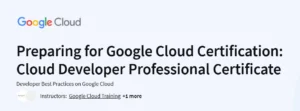What will you learn in Mini Course: Build Rock Paper Scissors with C++ Course
Hands-on experience building a classic Rock Paper Scissors game using C++
Understand procedural programming concepts applied to game logic
Write modular, testable code by breaking functionality into helper functions
Use console I/O and basic C++ standard-library features (enums, RNG, control flow)
Program Overview
Module 1: Course Introduction & Game Demo
⏳ 5 minutes
Topics: Overview of project goals and final gameplay
Hands-on: Run the completed game to understand end-to-end flow
Module 2: Environment Setup
⏳ 5 minutes
Topics: Setting up your C++ compiler or IDE, project structure
Hands-on: Initialize a new console-application project
Module 3: Defining Moves & Random Choice
⏳ 5 minutes
Topics:
enumfor Rock/Paper/Scissors,std::rand()setupHands-on: Implement a function that returns a random computer move
Module 4: Player Input & Validation
⏳ 5 minutes
Topics:
std::cinusage, input sanitization, error handlingHands-on: Capture and validate the player’s move selection
Module 5: Round Outcome Logic
⏳ 5 minutes
Topics: Conditional statements to compare moves and decide win/lose/tie
Hands-on: Write a function
determineWinner(player, computer)
Module 6: Modularization & Helper Functions
⏳ 5 minutes
Topics: Splitting code into reusable functions and headers
Hands-on: Refactor outcome and I/O code into separate helper units
Module 7: Game Loop & Score Tracking
⏳ 5 minutes
Topics:
whileloops for repeated play, tracking wins/losses/drawsHands-on: Build the main loop that lets users play multiple rounds
Module 8: Testing & Final Cleanup
⏳ 10 minutes
Topics: Manual test cases, edge-case handling, code comments
Hands-on: Test various game scenarios and ensure robust behavior
Get certificate
Job Outlook
Junior C++ Developer: $70,000–$100,000/year — apply foundational C++ skills in software teams
Game Development Intern: $40,000–$60,000/year — demonstrate basic game-logic implementation in entry-level roles
Software Engineer (Entry-Level): $60,000–$90,000/year — leverage modular programming experience for broader application domains
Knowledge of core C++ concepts and modular code design accelerates your path into real-world development and technical interviews.
Specification: Mini Course: Build Rock Paper Scissors with C++ Course
|
FAQs
- No prior programming experience needed; beginner-friendly.
- Covers variables, control flow, and basic data structures.
- Introduces debugging techniques and problem-solving strategies.
- Hands-on exercises help reinforce learning.
- Prepares learners for entry-level development roles.
- Learn version control with Git: cloning, branching, merging.
- Hands-on experience with IDE setup and configuration.
- Understand build systems and package managers (Maven, npm, Gradle).
- Practice code reviews and collaborative workflows.
- Gain familiarity with development pipelines and CI basics.
- Learn modular design and DRY principles.
- Practice writing unit tests and using debugging tools.
- Refactor code for readability and maintainability.
- Understand logging, stack traces, and error handling.
- Develop skills for long-term project sustainability.
- Prepares for Junior Software Developer and QA Engineer roles.
- Hands-on coding exercises simulate workplace scenarios.
- Covers Git, testing, debugging, and code documentation.
- Teaches collaboration, task estimation, and feedback incorporation.
- Builds foundational skills for continuous professional growth.
- Draft a 6-month personalized learning roadmap.
- Learn to seek feedback and iterate on projects.
- Explore open-source contribution opportunities.
- Identify practical projects to apply new skills.
- Set milestones to track growth and skill acquisition.





